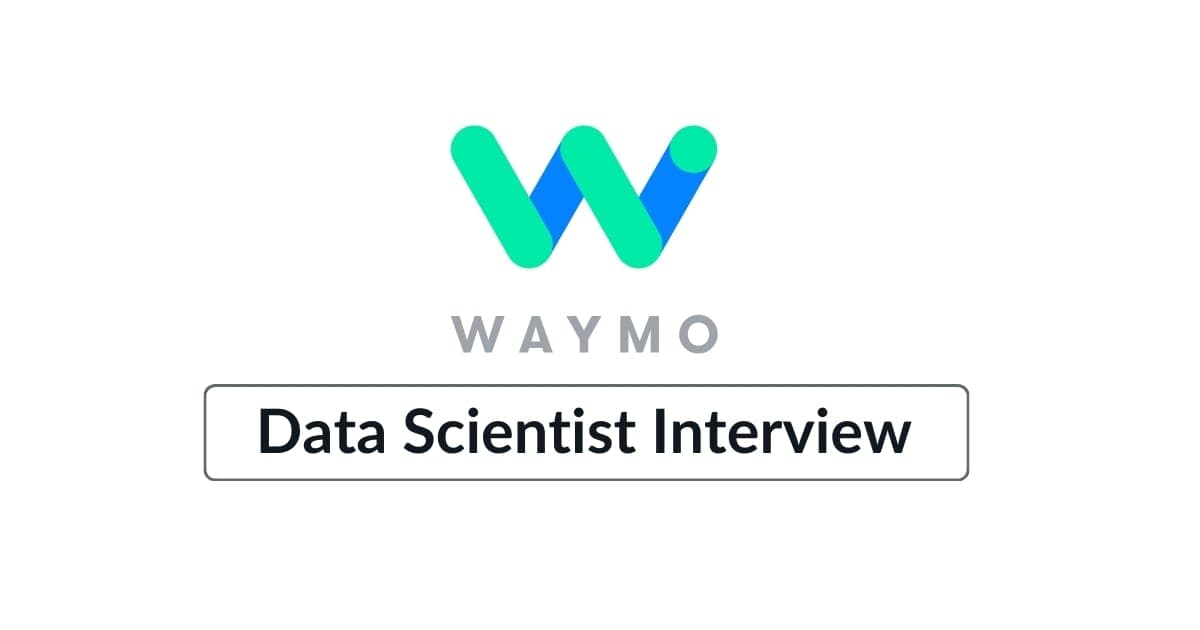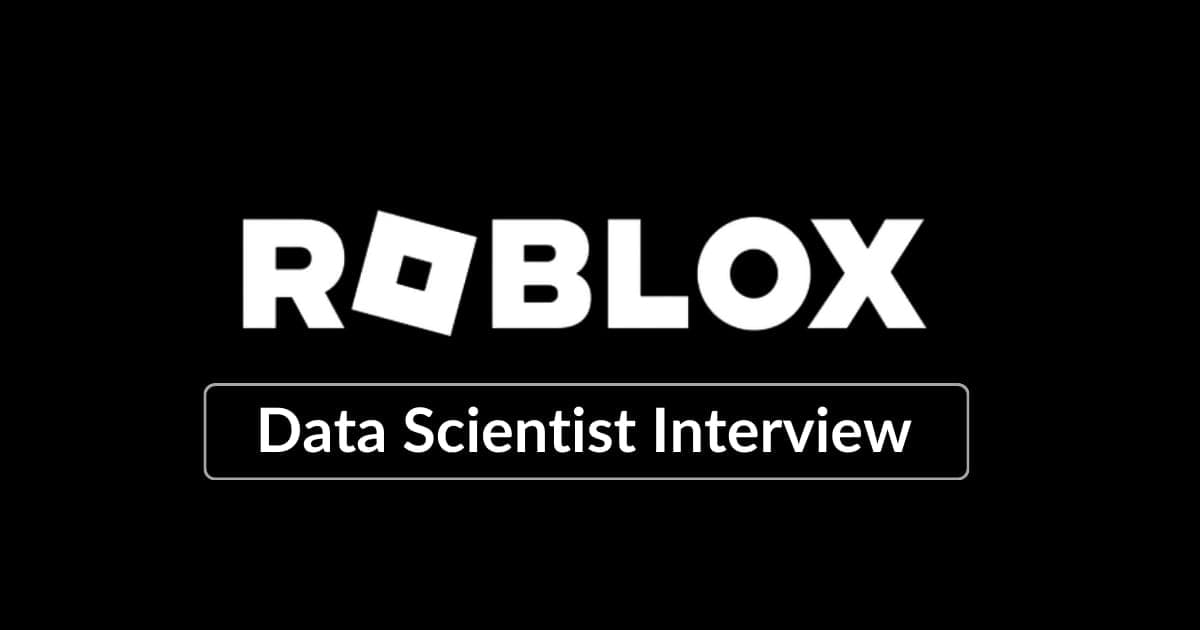Are you preparing for a Data Scientist interview at McKinsey & Company? This comprehensive guide will provide you with insights into McKinsey's interview process, the key skills they seek, and strategies to help you excel.
As a leading global management consulting firm, McKinsey values data-driven decision-making and innovative problem-solving. Understanding their unique approach to interviewing can significantly enhance your chances of success, whether you're an experienced data professional or just starting your career in data science.
In this guide, we will explore the interview structure, discuss the types of questions you can expect, and share valuable tips to help you navigate each stage with confidence.
Let’s dive in 👇
1. McKinsey & Company Data Scientist Job
1.1 Role Overview
At McKinsey & Company, Data Scientists play a pivotal role in transforming complex data into actionable insights that drive strategic decisions for some of the world's leading organizations. This position requires a unique combination of technical prowess, analytical thinking, and a deep understanding of industry-specific challenges to deliver impactful solutions. As a Data Scientist at McKinsey, you will collaborate with multidisciplinary teams to tackle significant challenges and contribute to the firm's mission of creating lasting impact for clients.
Key Responsibilities:
- Develop and implement advanced analytics models to solve business problems and optimize client performance.
- Leverage machine learning techniques to identify patterns and predict outcomes that inform strategic initiatives.
- Create and maintain data visualization tools to support decision-making processes for clients and internal stakeholders.
- Analyze large datasets to extract meaningful insights and drive data-driven strategies.
- Design and conduct experiments to evaluate the effectiveness of business interventions.
- Collaborate with teams across various functions, including engineering, product management, and consulting, to ensure alignment on project goals and data accessibility.
- Ensure data integrity and build scalable data pipelines to support analytics projects.
Skills and Qualifications:
- Proficiency in programming languages such as Python and R, and experience with SQL for data manipulation.
- Strong understanding of machine learning algorithms and statistical modeling techniques.
- Experience with data visualization tools like Tableau or Power BI.
- Knowledge of experimental design and A/B testing methodologies.
- Ability to manage complex projects, including planning, execution, and impact assessment.
- Excellent communication skills to effectively convey data insights and recommendations to diverse audiences.
1.2 Compensation and Benefits
McKinsey & Company offers a competitive compensation package for Data Scientists, reflecting its commitment to attracting and retaining top talent in the data, machine learning, and AI fields. The compensation structure includes a base salary, performance bonuses, and stock options, along with various benefits that promote professional growth and work-life balance.
Example Compensation Breakdown by Level:
| Level Name | Total Compensation | Base Salary | Stock (/yr) | Bonus |
|---|---|---|---|---|
| Data Scientist | $151K | $134K | $0 | $16.7K |
| Associate Data Scientist | $194K | $175K | $0 | $19K |
| Senior Data Scientist | $223.7K | $200K | $0 | $23.7K |
Additional Benefits:
- Comprehensive health and dental insurance.
- Retirement savings plans with company matching.
- Generous paid time off and flexible work arrangements.
- Professional development opportunities, including training and mentorship programs.
- Access to wellness programs and resources.
Tips for Negotiation:
- Research industry benchmarks for data scientist roles to understand the competitive landscape.
- Consider the total compensation package, including bonuses and benefits, when evaluating offers.
- Highlight your unique skills and experiences that align with McKinsey's needs during negotiations.
McKinsey's compensation structure is designed to reward excellence, innovation, and collaboration. For more details, visit McKinsey's careers page.
2. McKinsey & Company Interview Process and Timeline
Average Timeline: 4-6 weeks
2.1 Resume Screen
The first stage of McKinsey & Company’s Data Scientist interview process is a resume review. Recruiters assess your background to ensure it aligns with the job requirements. Given the competitive nature of this step, presenting a strong, tailored resume is crucial.
What McKinsey Looks For:
- Proficiency in Python, SQL, and advanced statistical analysis.
- Experience in A/B Testing, algorithms, and analytics.
- Projects that demonstrate innovation, business impact, and collaboration.
Tips for Success:
- Highlight experience with machine learning models and product metrics.
- Emphasize projects involving probability and statistics.
- Use keywords like "data-driven decision-making," "statistical modeling," and "SQL."
- Tailor your resume to showcase alignment with McKinsey’s mission of driving impactful solutions through data.
2.2 Recruiter Phone Screen
In this initial call, the recruiter reviews your background, skills, and motivation for applying to McKinsey & Company. They will provide an overview of the interview process and discuss your fit for the Data Scientist role.
Example Questions:
- Can you describe a time when your analysis directly influenced a business decision?
- What tools and techniques do you use to clean and analyze large datasets?
- How have you contributed to cross-functional team projects?
Prepare a concise summary of your experience, focusing on key accomplishments and business impact.
2.3 Technical Screen
This round evaluates your technical skills and problem-solving abilities. It typically involves technical questions related to data science, including A/B Testing, algorithms, and machine learning.
Focus Areas:
- Python and SQL: Write queries and scripts to manipulate and analyze data.
- Statistical Analysis: Explain concepts like hypothesis testing and regression.
- Machine Learning: Discuss model evaluation metrics and feature engineering.
Preparation Tips:
Consider mock interviews or coaching sessions to simulate the experience and receive tailored feedback. This can help you fine-tune your responses and build confidence.
2.4 Onsite Interviews
The onsite interview typically consists of multiple rounds with data scientists, managers, and cross-functional partners. Each round is designed to assess specific competencies.
Key Components:
- Technical Challenges: Solve exercises that test your ability to manipulate and analyze data effectively.
- Real-World Business Problems: Address complex scenarios involving data science applications.
- Behavioral Interviews: Discuss past projects, collaboration, and adaptability to demonstrate cultural alignment with McKinsey.
Preparation Tips:
- Review core data science topics, including statistical testing and machine learning algorithms.
- Research McKinsey’s projects and think about how data science could enhance them.
- Practice structured and clear communication of your solutions, emphasizing actionable insights.
For Personalized Guidance:
Consider mock interviews or coaching sessions to simulate the experience and receive tailored feedback. This can help you fine-tune your responses and build confidence.
McKinsey & Company Data Scientist Interview Questions
Probability & Statistics Questions
Probability and statistics questions at McKinsey assess your ability to apply statistical methods to solve real-world problems and make data-driven decisions.
Example Questions:
- Explain the Central Limit Theorem and its significance in data analysis.
- How would you test if a coin is fair?
- Describe a situation where you would use a t-test versus a chi-square test.
- What is the difference between Type I and Type II errors?
- How do you interpret a p-value?
- Explain the concept of confidence intervals and how they are used in decision-making.
- What is the law of large numbers and how does it apply to data science?
For a deeper understanding of statistics, consider the Applied Statistics course.
Machine Learning Questions
Machine learning questions evaluate your understanding of algorithms, model building, and the application of machine learning techniques to business problems.
Example Questions:
- Explain the difference between supervised and unsupervised learning.
- How would you handle missing data when building a machine learning model?
- Describe the process of feature selection and why it is important.
- What is overfitting, and how can you prevent it?
- Explain the concept of cross-validation and its importance in model evaluation.
- How do you choose the right evaluation metric for a classification problem?
- Describe a scenario where you would use a decision tree over a logistic regression model.
Enhance your machine learning skills with the Machine Learning course.
SQL Questions
SQL questions assess your ability to manipulate and analyze data using complex queries. Below are example tables McKinsey might use during the SQL round of the interview:
Projects Table:
| ProjectID | ProjectName | StartDate | EndDate | ClientID |
|---|---|---|---|---|
| 1 | Market Analysis | 2023-01-15 | 2023-03-15 | 101 |
| 2 | Product Launch | 2023-02-01 | 2023-04-01 | 102 |
| 3 | Customer Survey | 2023-03-10 | 2023-05-10 | 103 |
Clients Table:
| ClientID | ClientName | Industry | Location |
|---|---|---|---|
| 101 | Alpha Corp | Retail | New York |
| 102 | Beta Inc | Technology | San Francisco |
| 103 | Gamma LLC | Finance | Chicago |
Example Questions:
- Project Duration: Write a query to calculate the duration of each project in days.
- Client Projects: Write a query to list all projects for a specific client, e.g., 'Alpha Corp'.
- Industry Analysis: Write a query to find the number of projects per industry.
- Location-Based Projects: Write a query to find projects located in 'San Francisco'.
- Overlapping Projects: Write a query to identify projects that have overlapping dates.
Behavioral Questions
Behavioral questions assess your ability to work collaboratively, navigate challenges, and align with McKinsey’s mission and values.
Example Questions:
- Can you tell me about a time when you had a different opinion than a colleague on a data science project?
- Describe a time when you had to work closely with a team to complete a data science project.
- Can you describe a time when you faced ambiguity in a data science project?
- How do you prioritize tasks when working on multiple projects?
- Share an example of a challenging dataset you worked with and how you handled it.
4. How to Prepare for the McKinsey & Company Data Scientist Interview
4.1 Understand McKinsey’s Business Model and Products
To excel in open-ended case studies at McKinsey, it’s crucial to understand their business model and the range of services they offer. McKinsey & Company is a global management consulting firm that provides strategic advice to businesses, governments, and institutions.
Key Areas to Understand:
- Consulting Services: How McKinsey leverages data to drive strategic decisions and create lasting impact for clients.
- Industry Expertise: The role of data science in addressing industry-specific challenges across sectors like healthcare, finance, and technology.
- Client Engagements: How McKinsey collaborates with clients to deliver data-driven solutions and optimize performance.
Understanding these aspects will provide context for tackling business case questions and demonstrating your ability to apply data science in a consulting environment.
4.2 Master Technical Skills
Proficiency in technical skills is essential for success in McKinsey’s data scientist interviews. Focus on honing your abilities in programming, statistical analysis, and machine learning.
Key Skills:
- Programming: Python and R for data manipulation and analysis.
- SQL: Writing complex queries to extract and analyze data.
- Machine Learning: Understanding algorithms, model evaluation, and feature engineering.
- Data Visualization: Tools like Tableau or Power BI to present insights effectively.
Consider enrolling in a Data Scientist Interview Bootcamp to strengthen these skills and gain practical experience.
4.3 Align with McKinsey’s Mission and Values
McKinsey’s mission is to create lasting impact for clients through data-driven insights and strategic solutions. Aligning your preparation with this mission is key to showcasing your cultural fit during interviews.
Core Values:
- Commitment to excellence and innovation.
- Collaboration across diverse teams and disciplines.
- Dedication to data-driven decision-making and problem-solving.
Showcase Your Fit:
Reflect on your experiences where you:
- Used data to drive impactful business decisions.
- Innovated on existing processes or solutions.
- Collaborated effectively with cross-functional teams to achieve shared goals.
4.4 Practice Problem-Solving and Case Studies
McKinsey interviews often include case studies that assess your problem-solving abilities and business acumen. Practice structuring your approach to complex problems and articulating your thought process clearly.
Preparation Tips:
- Review common case study frameworks and apply them to real-world scenarios.
- Practice explaining your solutions in a structured and concise manner.
- Engage in mock interviews to simulate the experience and receive feedback.
Consider coaching services for personalized guidance and expert feedback.
4.5 Enhance Your Communication Skills
Effective communication is crucial for conveying data insights and recommendations to diverse audiences at McKinsey. Focus on developing your ability to present complex information clearly and persuasively.
Key Focus Areas:
- Practice explaining technical concepts to non-technical stakeholders.
- Develop storytelling skills to make data insights more relatable and impactful.
- Engage in public speaking or presentation workshops to build confidence.
4.6 Familiarize Yourself with McKinsey’s Interview Process
Understanding the structure and expectations of McKinsey’s interview process can help you prepare effectively. The process typically includes a resume screen, recruiter phone screen, technical screen, and onsite interviews.
Preparation Tips:
- Review the Data Scientist Interview Bootcamp for insights into each stage of the process.
- Prepare for technical questions related to data science, including A/B testing, algorithms, and machine learning.
- Practice behavioral questions to demonstrate your alignment with McKinsey’s values and mission.
5. FAQ
- What is the typical interview process for a Data Scientist at McKinsey & Company?
The interview process generally includes a resume screen, recruiter phone screen, technical screen, and onsite interviews. The entire process typically spans 4-6 weeks. - What skills are essential for a Data Scientist role at McKinsey?
Key skills include proficiency in programming languages such as Python and R, strong SQL skills for data manipulation, a solid understanding of machine learning algorithms, statistical modeling techniques, and experience with data visualization tools like Tableau or Power BI. - How can I prepare for the technical interviews?
Focus on practicing SQL queries, Python coding challenges, and real-world data scenarios. Review statistical concepts, A/B testing methodologies, and machine learning techniques to ensure you can apply them effectively in problem-solving. - What should I highlight in my resume for McKinsey?
Emphasize your experience with advanced analytics models, machine learning projects, and data-driven decision-making. Tailor your resume to showcase your ability to deliver impactful solutions and your collaboration with cross-functional teams. - How does McKinsey evaluate candidates during interviews?
Candidates are assessed on their technical skills, problem-solving abilities, and cultural fit. McKinsey places a strong emphasis on collaboration, innovation, and the ability to communicate data insights effectively. - What is McKinsey's mission?
McKinsey's mission is to create lasting impact for clients through data-driven insights and strategic solutions, helping organizations tackle their most significant challenges. - What are the compensation levels for Data Scientists at McKinsey?
Compensation for Data Scientists at McKinsey ranges from approximately $151K for entry-level positions to $223.7K for senior roles, including base salary, performance bonuses, and stock options. - What should I know about McKinsey's business model for the interview?
Understanding McKinsey's consulting services, industry expertise, and how they leverage data to drive strategic decisions will be beneficial. Familiarity with their approach to client engagements and data-driven solutions is crucial for case study questions. - What are some key metrics McKinsey tracks for success?
Key metrics include client satisfaction, project impact assessments, and the effectiveness of data-driven strategies implemented for clients across various industries. - How can I align my responses with McKinsey's mission and values?
Highlight experiences that demonstrate your commitment to excellence, innovation, and collaboration. Discuss how you have used data to drive impactful business decisions and enhance client outcomes.



